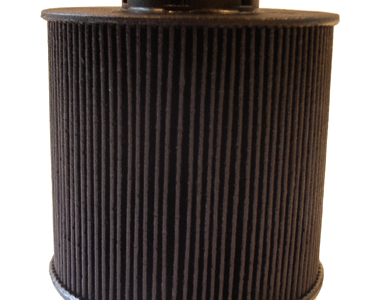Asphaltene Production and Re-polymerization in ULSD Fuels
Have you seen filters that look like this.
There is a difficult new problem with ULSD fuels. Today most ULSD is derived using the process of catalytic cracking. This form of refining uses very high temperatures, high pressures, and chemicals known as catalysts to refine crude oils into various fractions including Ultra Low Sulfur Diesel. The fuels derived using these processes suffer from a wide range of problems including a lack of oxidative and thermal stability.
This lack of stability manifests itself in many ways including an increased ability to hold dissolved water, an increased negative reaction with oxygen, and a far greater inability to handle high temperatures over time. Different refining processes and catalysts can make these problems better or worse. It appears that certain refineries produce fuels which are far less stable than that of others.
Diesel engines recirculate fuel to lubricate and cool the fuel system and engine components, In the past fairly large volumes of fuel were recirculated and this tended to keep temperatures lower, generally in the 140˚F to 160˚F. Today some of the newer engines can heat that fuel to temperatures that can exceed 200˚F or even 220˚F.
When some catalytically derived fuel is exposed to temperatures above 100˚F for extended periods of time such as when fuel is recirculated in a diesel engine, the catalytic process starts up again re-polymerizing parts of the fuel. This results in rapid deterioration and darkening of the fuel. In this process small droplets of asphaltenes (heavy oils) are formed.
When the fuel is again pumped from the tank, the fuel filters will pick up the tiny asphaltene droplets, agglomerating them until the filter or filters are plugged. This can happen in 3000 to 5000 miles with some instances of plugging in less than 1000 miles.
While there are additives that can add thermal and oxidative stability to fuels, they are not commonly used by refiners or fuel distributors. These additives are not found in most aftermarket additives.
Additives such Enertech Labs Complete Fuel Treatment and Complete Fuel Treatment Matrix do contain these additives and will dramatically improve thermal and oxidative stability while providing a wide range of other benefits.


